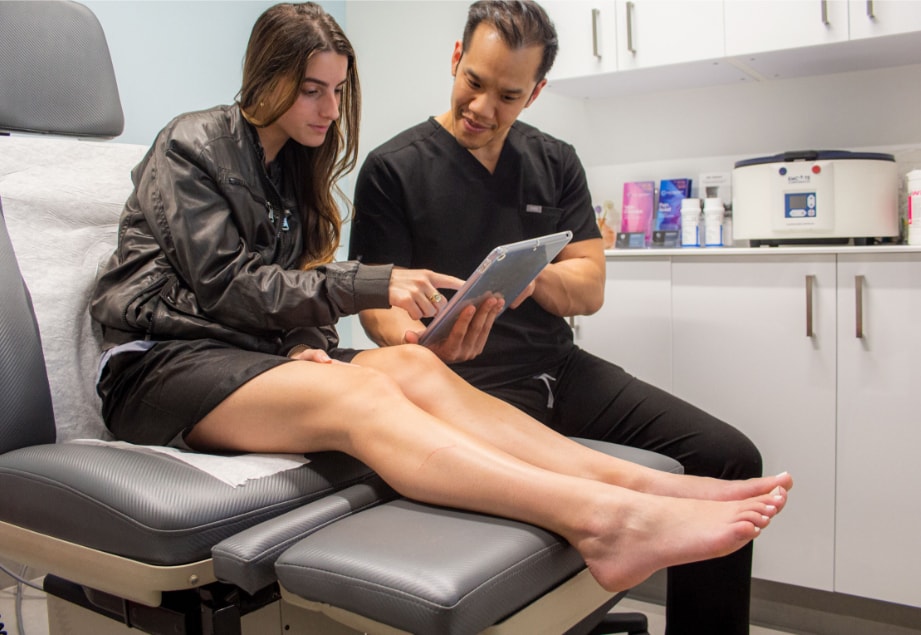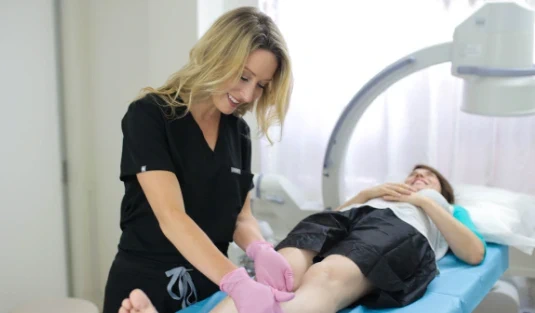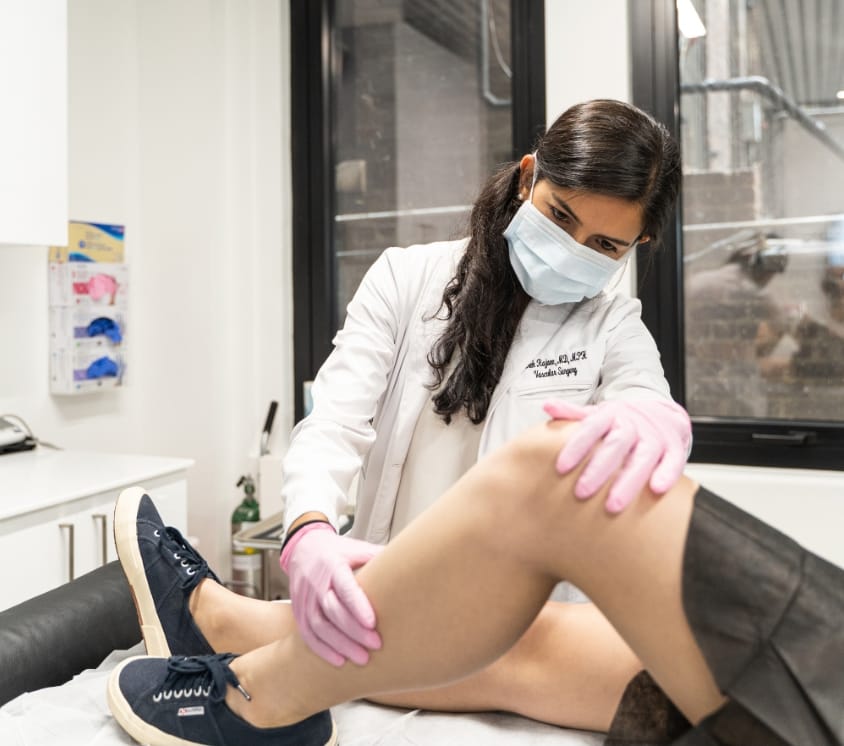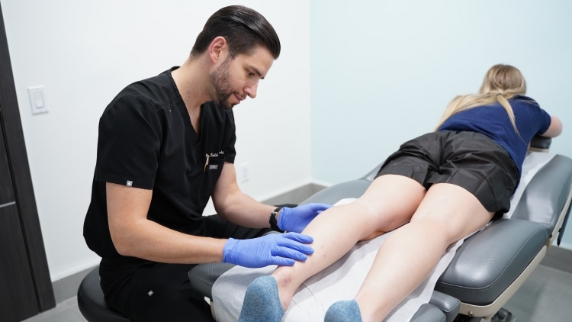Step 1: Look for a veins center near your location
When looking for a veins center, your first consideration should be the location. There’s no point in finding the best vein clinic in the country if it’s several hours away, especially since vein treatments often necessitate multiple sessions. You should ideally find an advanced vein care center within 30 to 60 minutes from your residence or place of work. This will allow you to access vein treatments without shifting your schedule too much.
VIP Medical Group is a collective of some of the country’s best, state-of-the-art vein clinics and board-certified vein doctors. We have IAC-accredited vein centers in New York City, Long Island, California, New Jersey, and Texas. If you’re in or around any of these locations, we encourage you to reach out and schedule an appointment. We also provide hassle-free insurance verification and actively help minimize your out-of-pocket costs.

Step 2: Read the patient testimonials and reviews
After narrowing down your selection of vein clinics near your location, you should focus on their patient testimonials and reviews. Patients can leave unbiased and unfiltered reviews for their vein clinics on third-party platforms, such as Google, Facebook, and Real Self. The ratings and reviews posted on these platforms can’t be manipulated by the vein clinics, so you can rely on them completely. You should look for vein centers with unanimous 5-star ratings and reviews, indicative of a perfect track record and exceptional standards of vein care.
Our VIP vein treatment clinics have unanimous 5-star ratings from all patients and across all of our vein centers in the US. One of our recent patients wrote, “I had a great experience at this doctor’s office — very clean, modernized, and friendly staff. Patient care always comes first, always. Dr. Sareh Rajaee was very helpful in answering all my questions, and she did a great job treating the spider veins I was very self-conscious of. I am greatly satisfied with her.”

Step 3: Visit the vein center’s website
After narrowing down your selection of vein centers even further, it’s time to visit their websites. Word of caution — the lack of an official website is a huge red flag. If a vein clinic doesn’t have the foresight to produce a modern website in this age, they’re clearly not capable of providing minimally invasive vein treatments, most of which rely on advanced, cutting-edge technologies. You should ideally look for modern websites that provide all the necessary information about your vein treatment options, while also providing information about their vein doctors.
Step 4: Learn about the vein doctors
You can learn about the vein clinics’ vein doctors from the “about” section of their websites. When you look for good vein doctors, you should focus on a few essential criteria, such as board certification, educational background, and specialization in minimally invasive vein treatments. Board certification isn’t necessary to practice vein care, but it’s an indication that the vein doctor has undergone advanced training and specialization, making them some of the country’s leading vein experts. Furthermore, the vein doctor must have specialized training in minimally invasive spider vein and varicose vein treatments.
The vein treatment clinics under VIP Medical Group are led by some of the country’s finest vein experts. We individually select vein doctors from the country’s leading medical schools, residency programs, and fellowships. Furthermore, our vein doctors are required to undergo a board certification process from the American Board of Venous and Lymphatic Medicine, an organization that only certifies the country’s top 1% vein doctors. Our vein doctors also stay abreast of the latest developments in vein care and provide cutting-edge minimally invasive vein treatments.
Step 5: Look for minimally invasive treatments
In the past, varicose veins and venous insufficiency were treated using complex vascular surgeries, such as vein ligation, vein stripping, and venous bypass surgery. Surgical procedures involve multiple excisions, hospitalization, and downtime, and a relatively high risk of complications. Thanks to recent advancements in technologies, we can now treat venous insufficiency using in-office minimally invasive procedures, such as radiofrequency ablation, endovenous laser ablation, venaseal, ambulatory phlebectomy, and sclerotherapy.
Our vein treatment clinics only provide minimally invasive procedures instead of vascular surgeries. Our vein doctors examine your leg veins, review your medical history, discuss your symptoms, and curate personalized vein treatment plans for your specific needs. If you have vein disease, we recommend radiofrequency ablation, endovenous laser ablation, or venaseal. And we remove superficial varicose veins and spider veins with ambulatory phlebectomy and sclerotherapy. Our minimally invasive procedures conclude within an hour with no downtime.
Step 6: Hassle-free insurance verification is a must
Most vein health concerns, including spider veins and varicose veins, are symptomatic of chronic venous insufficiency, a dangerous medical condition caused by the collapse of vein valves. As such, most insurance plans cover minimally invasive procedures, especially if you have vein disease. That’s why you must find vein centers that provide hassle-free insurance verification and actively help with coverage.
Our vein clinics provide hassle-free insurance verification for all patients. Furthermore, our vein doctors consider your insurance coverage options while curating a treatment plan to minimize your out-of-pocket financial burden. You also receive a complete overview of your vein treatment costs, with or without insurance coverage, before the procedure starts. This allows you to proceed with vein treatment with complete mental clarity.
Following these simple steps will help you find the best veins center near your location in New York, Texas, California, or New Jersey.













